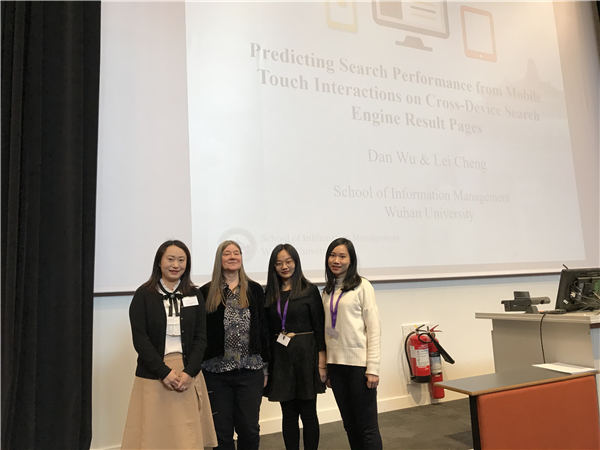Stars on a bigger stage


Inspired by Stanford professor Li Feifei's recent research on emotion in artificial intelligence, the paper analyzes a user's emotional changes in pedestrian navigation while using map apps.
"Users' emotions can significantly affect their perceptions toward apps and affect user behavior," she adds.
The research team finds that emotions of disgust and happiness are common in pedestrian navigation. And they hope to offer insights to app developers to promote emotional learning in artificial intelligence.
Lu also plans to find out what triggers negative emotions.
"I want to help users to find a happy road in my further research," she says.
Cheng's paper Predicting Search Performance from Mobile Touch Interactions on Cross-Device Search Engine Result Pages focuses on human-computer interaction and information retrieval, which examines how mobile touch interactions affect search performance in cross-device searches.
"If you search a topic on a smartphone, you see certain related information there," says the 24-year-old Library Science major.
"But when you switch to a different device, you might see information that hasn't appeared before."
Wu Dan, their professor at the School of Information Management at Wuhan University, says: "It's unusual for postgraduate students to present at such a high-level conference, and both of them feel honored to be participating.
"They faced multiple challenges including language and psychological barriers, but they made it. Such experience will be very beneficial for their future development."




































